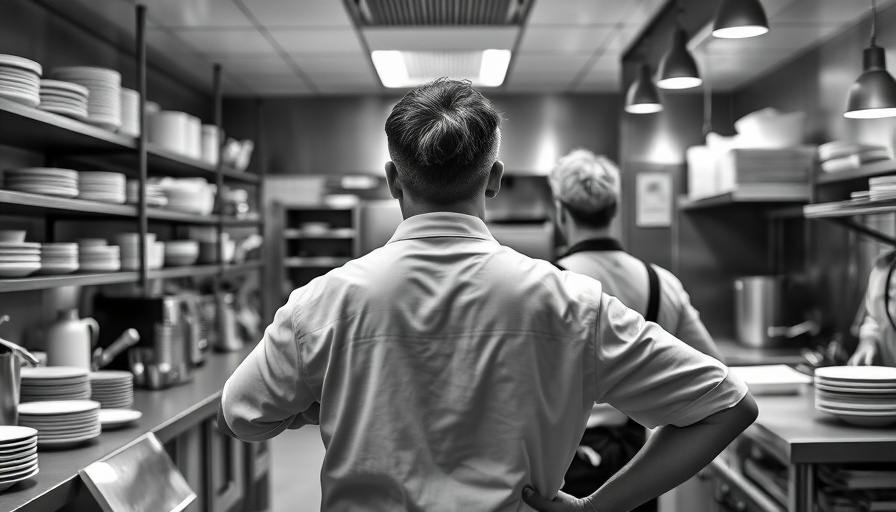
The Hidden Threats of Vibe Sabotage in Restaurants
As the dining landscape struggles to recover from pandemic-induced challenges, the phenomenon of ‘vibe sabotage’ surfaces as a critical issue affecting restaurant atmospheres. Richard Birke, Chief Architect at JAMS Pathways, sheds light on how escalating internal conflicts among staff can lead to detrimental customer experiences. With changing employee expectations and a diminishing workforce, the restaurant industry is facing pressures that underscore the importance of maintaining a positive vibe.
Understanding the Roots of Burnout
Birke points to the historical context of restaurant work as a 'pressure cooker' environment, exacerbated by the pandemic. This amplified pressure often leads to burnout, where staff must put on a facade of flawless service despite their personal struggles. The struggle to balance work exigencies with personal well-being can lead to a spiral of dissatisfaction among both employees and diners.
Shift Favoritism: A Recipe for Discord
One major player in vibe sabotage is shift favoritism. When supervisors assign prime shifts to a select few, it ignites feelings of resentment among those left behind. This impacts team morale and cohesion, often resulting in a lackluster dining experience for patrons. A well-functioning team is crucial for an exceptional service – a lesson evident in the award-winning fine dining experiences often revered in customer reviews.
Action Steps: Implementing Open Dialogue
The resolution begins with open communication. Birke suggests engaging all staff in discussions about their experiences. This not only garners insight into staff feelings but also promotes a culture of fairness and recognition that respects individual contributions. After all, a restaurant's success hinges on a harmonious atmosphere where every team member feels valued, thereby reflecting positively on customer service.
Conclusion: Cultivating a Positive Restaurant Culture
Addressing vibe sabotage is key to maintaining an inviting restaurant atmosphere. Managers must recognize the importance of equity and inclusivity to avoid conflict and unhappiness among staff. As diners increasingly seek out luxury and fine dining restaurants, the direct correlation between service quality and team dynamics becomes more apparent. Consider how a positive work environment can enhance everything from fine dining with tasting menus to Michelin star restaurants near me.
 Add Row
Add Row  Add
Add 




Write A Comment